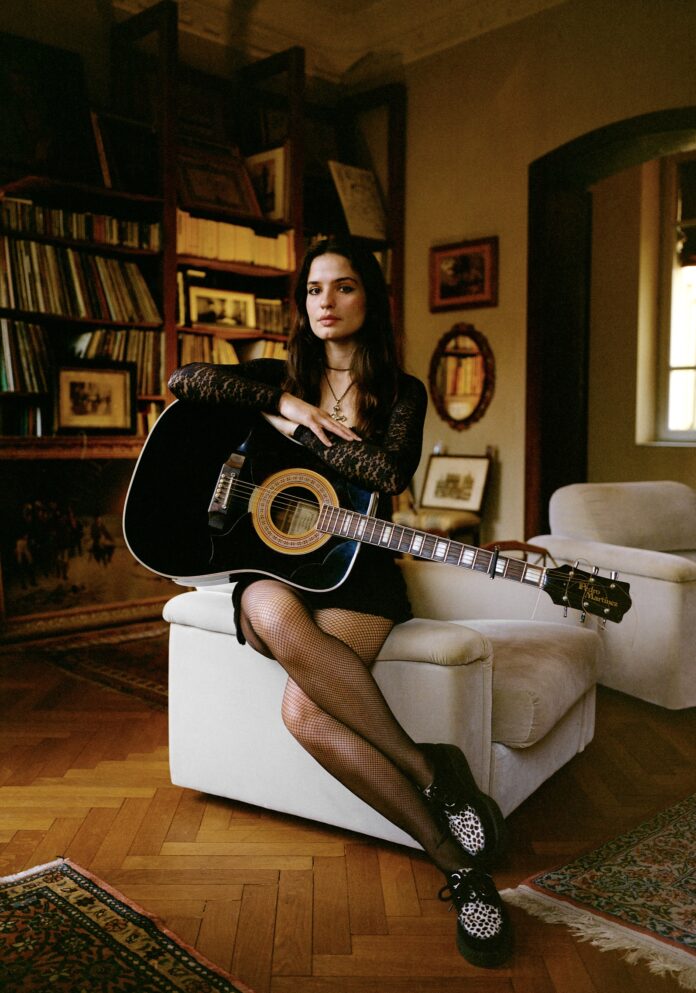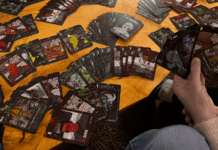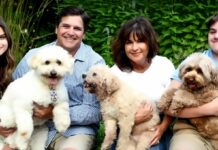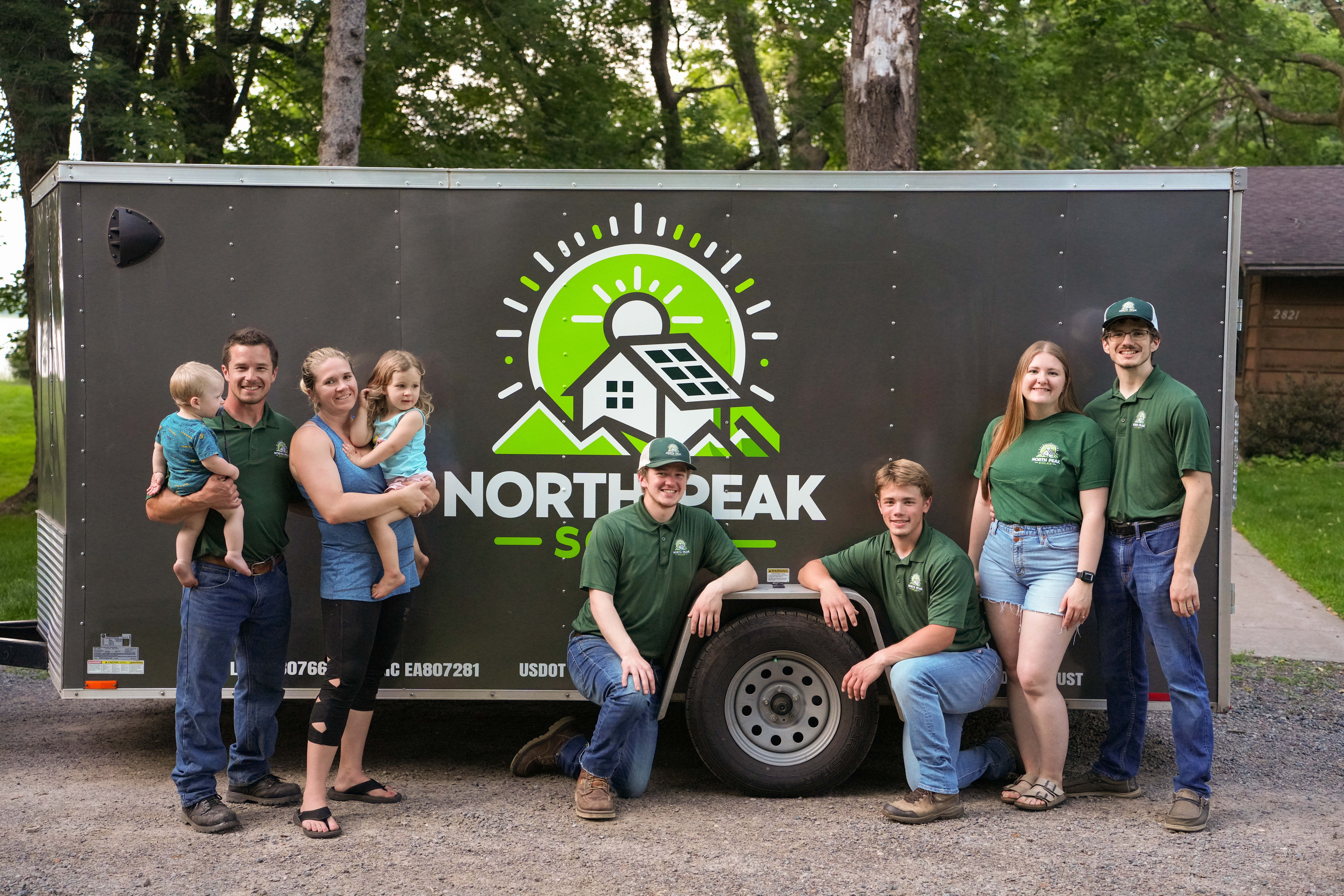Web3 songstress, Violetta Zironi talks NFTs, X factor, and an Italian heritage rooted in the creative arts
Lede
It all started a bit Quirky with a guy named “Crocket” and his conviction for collaboration. Known as @SamAdoption on Twitter X, he moonlights as a web3 community manager, and full-time fire fighter during the day. His generous donation of an IRL (in real life) reward tied to owning all 9/9 Moonshot NFT’s, created by Violetta Zironia, unlocked a chain of events that set the stage for Violetta Zironi flying to Minneapolis to perform an acoustic set and participate on a music panel at the inaugural 2024 NFTMSP: Culture Convergence event over the Labor Day weekend.
With Violetta returning for an encore this year, she was kind enough to share her journey including catching her first “break” on X factor performing with a ukulele when she was only a teenager. An opportunity many her shoes would have seized in hopes of providing a faster track to mainstream pop music success, while industry insiders took their “fair” share along the way. Instead, Violetta chose a path that reflected her natural proclivity for independence, committed to remaining true to her own unique sound but one that was reflective of a childhood growing up in a family, inspired by the arts.
Interview
CP: Let’s start from the beginning. You grew up in Emilia-Romagna — a region steeped in opera, jazz, and Italian folk. What sounds surrounded you as a kid, and when did you first realize music wasn’t just background noise, but something that lived inside you?
VZ: I grew up in a family passionate about the arts. My mom a big art appreciator in general. My father, is a Disney illustrator and musician. Music was everywhere in our house, and my dad would jam with my sister and I since we were 2 or 3 years old. We had a lot of classical music in the house, as well as blues, jazz, and folk music. It was when my dad and I wrote our first song together (I was 3) that I realised I just loved it. That’s when my parents noticed as well, so they enrolled me into a children choir, and then piano lessons. Music has been more than just background for me since my early childhood.
CP: You were just a teenager when Italy met you on national television — ukulele in hand, standing out in a sea of pop acts on X Factor. Looking back, how did that early spotlight shape the way you saw yourself as an artist… and as a young woman in the industry?
VZ: The X factor experience, while being incredibly formative and important for my career, for a moment made me wonder if I was in fact being “not pop enough” so I experimented a bit with different producers, and industry people who would all want to have a say on how they thought I should sound, look, or perform. I came out of it even more confident about my sound, my message, so I believe that was a necessary test to my conviction. And as an artist overall, I was always rebellious. During X factor I often defied the rules and fought for what I thought was right, which is not always convenient on a TV competition. But I’m glad I did, cause I stayed true to who I was. I’m glad I had challenges that early in my life and career, cause they allowed me to understand truly who I really was and what I really wanted. I remember they didn’t know where to place me, how to treat me, cause I was different.
CP: Berlin, then London — you’ve chased more than geography in your 20s. What did stepping outside Italy teach you creatively? Was it freedom, reinvention, or something more unexpected?
VZ: All of the above. I felt like I was trapped in a box in Italy. Italy doesn’t have a lot of opportunities for those that decide to step outside of the herd and do things their way. Unfortunately. I knew there was more out there and had to go see what it was. It was in London then Berlin, that I truly found my identity as an artist again. Maybe cause I found the people who would see it from a different perspective, a global perspective. In Berlin I met my 2 main creative collaborators Michael Ochs and Ed Prosek, 2 American songwriters with whom I developed a long lasting creative relationship that goes on still today, after almost a decade. I found the freedom to experiment and find what ultimately was there all along, but just needed permission to come out. And then Berlin and London also became restrictive in a way, so I moved to the US. But I still almost exclusively collaborate with Michael and Ed.
CP: Your credits stretch beyond music — film roles, voice work, acting gigs. But songwriting seems to be the center of gravity. Is storytelling the common thread that ties it all together for you?
VZ: Absolutely. However, songwriting for me is more than story telling really…. Storytelling implies you’re telling a story that’s already happened. Whereas I find that when I write songs, it’s not about things that happened, to me or others, but rather I write them, and then those things end up happening. It’s truly magical. So in a way, my songwriting is a way for me to write my own story before it happens, my own future, before it’s even thinkable, speakable, just after it’s conceived somewhere deep inside my soul. I know it sounds weird, but the rest of my creative endeavours were first conceived in songs, then they happened.
CP: In late 2021, you stepped away from traditional paths and toward something most artists still barely understand: Web3. What was that moment like? What did you see in the blockchain that made you believe it was where your future could live?
VZ: I have to give credit to my mom. She’s the one who told me about web3 in the first place. I was at a very low point in my career. Pandemic, my whole model had been disrupted, and the challenges of the music industry and streaming platforms didn’t seem to have a solution. My mom told me about NFTs, and at first I didn’t quite understand as I was never into technology prior to then. But she told me this “if you don’t try everything, you may as well just quit”, that hit me hard. I was willing to do whatever it took, just so that I could continue make music. So I took a deeper look into it, and immediately resonated with the philosophy, the community, the innovativeness of the concept. Collecting anything on the internet? Owning it? Starting from currency, expanding to anything else. Music is my currency you see. So if there can be decentralised money, there can be decentralised music.
CP: Your NFT collections like Moonshot and Handmade Songs haven’t just been drops — they’ve been deeply personal releases. What’s it been like inviting fans into your process, not just as listeners, but as co-owners of your work?
VZ: It’s been the most life changing, rewarding, emotional, fulfilling experience I have ever had. Music was never meant to be shared passively, through the ether and received by numbers on a computer screen. Music is the most human of languages, made by humans, to be received by other humans. I really see it as a secret, unspeakable language, that we all somehow understand. Being able to share my most raw, personal form of expression with real people is everything I have ever wanted. I feel deeply personally connected to my community. We are those songs, together. Not just me alone anymore.
CP: In 2024, you became the first artist to inscribe a full song directly onto the Bitcoin blockchain. That’s more than a headline — it’s a kind of digital permanence. What did it mean to etch your art onto something designed to last forever?
VZ: Inscribing my music onto bitcoin for me as yet another way to feel my independence. Music is my currency, literally. Music is to me what Bitcoin is to the maxis, I believe it needs to be decentralised and immortal. Knowing that my message is now going to live forever, for the people to be sustained, makes me feel music has finally found its rightful place to exist in.
CP: And then there’s the visual side — your father, a comic book artist, hand-draws the art that accompanies your releases. What does it feel like to share this journey not just with fans, but with your own family’s creative DNA woven into the work?
VZ: It’s priceless. My family has been absolutely indispensable for my development as an artist, and of course as a person. Being able to finally collaborate with my dad in a space that allows artists to have agency over their creative expression has been an incredible experience. We’ve always wanted to collaborate, but it felt like in web2, we needed to follow the rules of the system and we couldn’t just collaborate freely as artists, as a family. Web3 gave us permission to do that.
CP: The Web3 world can be loud — lots of hype, lots of flash. But you’ve spent thousands of hours building something real: hosting Twitter/X Spaces, showing up for your collectors. What does “community” mean to you when it comes to music ownership?
VZ: Community is at the foundation of everything. Life, art, technology, food, history. Music has a special ability to bring people together. Like I mentioned above, music is a secret language, and the people who understand it, naturally come closer together. The community I built in web3 is the first group of people I truly feel connected with, and I know I will carry them with me for the rest of time. Not to sound dramatic, but that’s really the plan. They’re a family now. And since we’re all owners of this music, we all have a stake in it. We’re all in it for the same reason.
CP: You’re performing an acoustic set Friday at NFTMSP and joining a panel on NFTs, Music, Art and Gaming on Saturday. For folks just dipping their toes into Web3, what’s the one idea or emotion you hope they carry home after hearing your story?
VZ: I would like people to feel like that if they feel like they’re not doing quite the right thing for them at the moment, they should not be afraid to go into something new, even if unknown and still in development. Whatever it is they want to do, there IS a way to do it. I came from a small town in Italy I just never felt like I fit into. And now here I am doing what I love with the people I love. And I’m not a genius haha. I just wanted to make music more than anything else in my life. I hope people can find passion.
CP: You’ve charted on Billboard’s music NFT list, sold thousands of tokens, and carved out a name that’s impossible to ignore in the Web3 music space. But looking ahead, when the pixels fade and platforms change, what kind I would like to see music finally valued again one day?
VZ: On a bigger scale, meaning, I want to see more artists and communities around them find the joy that genuine music can bring. I would like to see music in museums. I would like people to experience music again for what it can really offers. Not just passive listening. Human nature, experiences, memories, family. If I can do this for myself, my community, and inspire other artists to go in that direction with their community, I will be happy.
CP: Last one — whether it’s a lyric, a drawing, or just a post to your community… What’s the message you hope always echoes from your work?
VZ: “I would give up everything
I would defy gravity
Cause something’s out there telling me
I am not alone
so fire up my rocketship
I’m ready to risk it all
Because you and me are meant to be
The moonshot of them all.”
This interview was conducted via email in July of 2025







